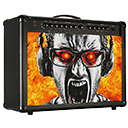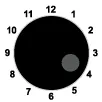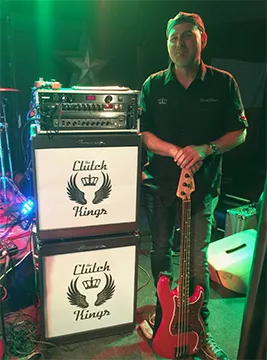
Do you often get distracted during a recording session? Do you wonder why recording takes longer than you’d anticipated? Are you looking for ways to make the whole recording process smoother?
If you answered yes to any of those questions, this post is for you.
Practice
Rehearsing the song you’re going to record — whether you’re a solo artist or a rock band — will make your recording sessions go much better.
You want to know the song so well that your muscle memory kicks in. The recording session with go way faster and it will sound better.
Customize Your Workstation
If you’re recording from home or in a studio you own and operate, you may already know the importance of your workstation setup. In my opinion, it will either help you or hurt you.
Set up your recording area in a way that allows you to quickly switch to a new instrument. This means having mics easily accessible.
Or, if you have the equipment and space, have your instruments already mic’d. For example, mic up your drum kit so you can just create a new track and jump over and make a beat.
Make your audio interface easily reachable. Set your computer at eye-height so you’re not hunched over. Your chair and desk should be the central spot with all knobs and recording stations easily reachable from there.
Keep Recording — Even If You Make A Mistake
If you’re constantly stopping and starting your takes, those several seconds in between can add up. So just keep recording, even if you mess up.
You never know — there might be part of that take that’s usable. Plus, you may realize there’s an easier or cooler way to play the part during one of these “throwaway” takes.
Paul McCartney recorded 32 takes of The Beatles’ “Blackbird” before he was happy. Eleven of those takes were complete from beginning to end — he recorded the whole song even though he wasn’t totally happy with it.
And, you could argue, he played it better each take — the last one was the one that made the cut.
Put Your Phone Away
This tip is mainly for millennials and younger generations (although older folks can be just as guilty). The phone — put it away. Turn it on Do Not Disturb, put it in the other room, or just turn it off. Focus on the music in front of you. Whoever is texting you can wait a couple of hours.
When your focus is interrupted, it takes you a minute to get back on track. And you don’t want your genius inspiration to get interrupted.
Edit Later
Just get all of your ideas out in the studio and sort the good from the bad later. Try every idea, even if you think it won’t work. You don’t really know if it will work until you record it.
After an idea is recorded and it turns out to be not so great, wait. When you listen with fresh ears the next day or next week, you may realize it has some merit. Maybe you could sample part of it for a catchy hook, or maybe it inspires a new idea.
The point here is to edit later. The first step is to just record — record everything. Then put the pieces together, add, subtract, and divide.
Your recording sessions will run more smoothly and you’ll end up with better music.
Caleb J. Murphy is a songwriter and producer based in Austin, TX. He’s also the founder of Musician With A Day Job, a blog that helps part-time musicians succeed.
Photo by Gavin Whitner












